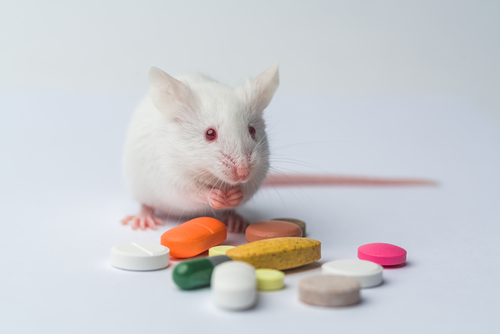Baricitinib, a medicine approved in Europe for the treatment for rheumatoid arthritis, both prevented and reverted a life-threatening complication of stem cell transplants called graft-versus-host disease, a study in mice suggests.
Notably, the medicine also increased the transplanted cells’ ability to target cancer cells, suggesting it could be safely used as a preventive measure for patients receiving stem cell transplants. It could also reduce the need for immunosuppressive agents in these patients.
Conducted by researchers at the Washington University School of Medicine in St. Louis, the study, “Baricitinib-induced blockade of interferon gamma receptor and interleukin-6 receptor for the prevention and treatment of graft-versus-host disease,” appeared in the journal Leukemia.
Stem cell transplants are an effective approach for the treatment of blood cancers, including lymphoma. But like most other treatments, stem cell transplants also carry risks, which include the development of graft-versus-host disease (GvHD).
GvHD is a debilitating, and sometimes lethal, disorder triggered when the transplanted cells attack the patient’s own organs or tissues. About half of patients receiving donor stem cell transplants develop GvHD.
Most patients receive immunosuppressive agents to treat this condition. But the strategy is not very effective, as it broadly dampens the immune system, reducing its ability to fight cancer.
“Transplanted donor stem cells — and more specifically, the T cells in the donor stem cell product — are particularly good at fighting off leukemia, but these cells can go haywire, unfortunately, and attack the patient’s healthy tissues, causing graft-versus-host disease,” John F. DiPersio, MD, PhD, senior author of the study and the Virginia E. and Sam J. Golman Professor of Medicine in Oncology, said in a university news release.
“The typical ways we can reduce the effects of the disease also tend to weaken the T cells’ ability to attack the cancer. We’re looking for a treatment strategy that stops the disease without shutting down T cells’ assault on the cancer,” he said.
Previous studies have shown that two enzymes called JAK1 and JAK2 are important mediators of immune activation and GvHD after stem cell transplants. Inhibiting the activity of these enzymes represents an attractive therapeutic opportunity to reduce the risk of GvHD and improve patients’ outcomes.
University researchers tested ruxolitinib (marketed under the brand name Jakafi) and baricitinib (brand name Olumiant), two chemical inhibitors of JAK enzymes approved for the treatment of other illnesses.
They found that treatment with baricitinib was more effective at preventing GvHD than ruxolitinib. Importantly, after the establishment of GvHD in mice, baricitinib was also able to shut down the damaging mechanisms of this immune attack.
“We were surprised to achieve 100 percent survival of mice with the most severe model of graft-versus-host disease,” said Jaebok Choi, PhD, lead author of the study and an assistant professor of medicine. “We are now studying the multi-pronged ways this drug behaves in an effort to develop an even better version for eventual use in clinical trials.”
Although it is not fully clear how the medication works in these cases, the researchers believe that baricitinib can retain the donor cells in the bloodstream, preventing them from reaching vital organs. At the same time, it seems to make cancer cells more vulnerable to the attack of the donor T-cells.
“We don’t know yet exactly how this happens, but we’re working to understand it,” Choi said.
Given this particular characteristic of baricitinib and its potential to prevent inflammatory disorders, the researchers will now explore if the treatment could be used to prevent organ rejection in patients receiving organ transplants.


